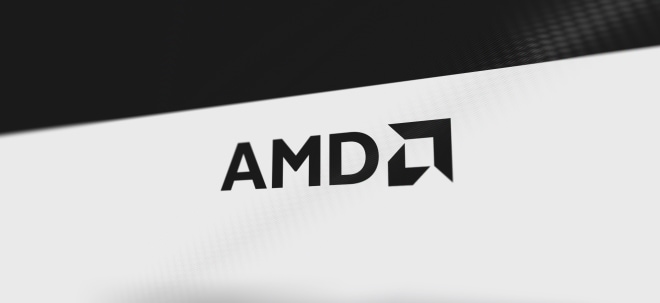Der vom WSJ veröffentlichte Brief von Senator Schumer im Anschluss an den Artikel von Nouriel Roubini. Da sage noch einer, es gäbe kein PPT ;-)))
The Stealth Public Bailout of Reckless “Countrywide”: Privatizing Profits and Socializing Losses
Nouriel Roubini | Nov 27, 2007
The letter by Senator Schumer questioning the $51.1 billion that Countrywide borrowed from the Federal Home Loan Bank system (specifically the Federal Home Loan Bank of Atlanta) has finally revealed the little dirty secret - that was known only to a few insiders and was noticed on this blog a month ago – that Countrywide, the largest US mortgage lender, has received a massive stealth public bailout that has put at severe risk taxpayers’ money. Here is Countrywide - the premier poster child financial institution of the reckless and predatory lending practices of the last few years – getting in severe financial trouble because of its rotten lending practice in subprime, near-prime and prime mortgages – and whose CEO Mozilo is under SEC investigation for potentially illegal activities – now receiving a massive $51.1 billion of public bailout money with little official supervision of such lending. Mozilo is under investigation for his accelerated sales of Countrywide stock under a 10b5-1 plan. Mozilo has made more than $100 million on stock sales this year, while Countrywide shares collapsed more than 50%.
As the Schumer letter correctly points out the collateral against this $51 billion loan is mostly toxic waste subprime garbage whose market value is now much lower than the face value of such mortgages; so $51 billion dollar of taxpayers’ money has been put at risk with garbage as collateral for it.
At least Northern Rock – that also received a massive official bailout in the UK – did so under the public scrutiny and serious criticism of such bailout by media, public, politicians and investors. Instead Countrywide – a huge mortgage lender that is most likely insolvent rather than illiquid – received a stealth bailout that only now is emerging to the public eye.
In the case of Northern Rock – another institution that is most likely insolvent rather than illiquid – the botched bailout led to public embarrassment for the Bank of England, the FSA and the UK Treasury. As authoritative analysts - such as Martin Wolf of the FT - have correctly argued, in cases where massive amounts of public money are at stake to bailout a nearly insolvent institution the fair punishment to the shareholders of such bank it to wipe out their equity and a public takeover – yes a nationalization – of the bank; that nationalization should be a temporary action to clean up the mess, get the incompetent and reckless shareholders and managers out, restructure the bank and then sell back to the private sector. Capitalism without punishment for reckless lending breeds moral hazard and pestilence.
As Wolf rightly put it:
If Northern Rock had been taken under public control at the same time, the Bank lending would have been unnecessary. Shareholders would have been wiped out, as was appropriate for an institution needing such a public rescue. The business would then have been sold off, in whole or in part, with any losses imposed on unsecured creditors (including the government). …What is now needed is better and more effective deposit insurance and bankruptcy provisions. If these had existed, Northern Rock would now be in some form of public administration and that is exactly where it should be today.
A fortiori the same public takeover should have been done in the case of Countrywide, the poster child of reckless mortgage lending and of the current mortgage disaster. Instead, rather than kicking out a reckless CEO - whose actions are now under SEC investigation – and putting the lender under public control, Countrywide has been rewarded with $51 billion of public money that was provided in a stealth bailout operation while the current shareholders and incompetent managers are still firmly in charge of the bank.
The right approach would have been - as Martin Wolf suggested for Northern Rock – to take over the bank and put it formally under public control. Instead the US Treasury, the FHFB, the Fed and the banking regulators have been tacit and/or explicit accomplices of the stealth public bailout of most egregious example of reckless and predatory lending, the core institution at the center of a subprime and mortgage disaster that is now taking the entire US economy into a recession.
The lesson of this sad and sleazy episode is that when profits are privatized and losses are socialized we get sleaze capitalism and corporate welfare that becomes public bailout of reckless lenders. All this from a US administration that hypocritically praises every other day the virtues of private markets capitalism. For all of us who do truly believe in free market economies where a variety of public goods are provided by governments and the financial sector is properly supervised and regulate this is not a capitalist system but rather socialism for the rich.
http://www.rgemonitor.com/blog/roubini/228924#readcomments
Schumer's Letter on FHLB Loans
November 26, 2007 2:10 p.m.
Sen. Charles Schumer, a New York Democrat, urged regulators to examine potential risks posed by a sharp increase in lending by the Federal Home Loan Bank of Atlanta to Countrywide Financial Corp., the nation's biggest mortgage lender. The following is his letter to regulators.
November 26, 2007
Ronald A. Rosenfeld
Chairman
Federal Housing Finance Board
1625 Eye Street NW
Washington, DC 20006
Dear Chairman Rosenfeld:
I write to express my serious concern over the lending practices of the Federal Home Loan Bank of Atlanta, specifically in regard to the significant volume of advances made to Countrywide Bank. I am concerned that the loans being pledged by Countrywide to secure these advances may pose a risk to the safety and soundness of the FHLB system as a whole. I urge you to conduct a careful review of FHLB Atlanta's collateral evaluation policies, as well as Countrywide's pledged collateral, in an effort to determine the risk that Countrywide's collateral poses to the FHLB system. During the current market crisis, it is important that the FHLB system perform its critical mission safely without imposing additional risks on an already strained market.
According to the most recent SEC filings, FHLB Atlanta had made $51.1 billion in advances to Countrywide Bank, representing 37 percent of the Bank's total outstanding advances as of September 30, 2007 and far exceeding advances made to the next largest borrower. Countrywide had pledged $62.4 billion of mortgages as collateral for the FHLB advances, representing 78 percent of its total mortgage loans held for investment at the bank.
I find these numbers alarming as reports continue to emerge about how Countrywide's reckless and predatory lending practices were a leading contributor to today's foreclosure crisis. Moreover, it is my understanding that Countrywide's loans held for investment at the bank have been far from immune from the credit deterioration that has resulted from unsound lending.
Countrywide reportedly held $27 billion of "pay option ARMs" as of September 30, 2007, accounting for over one-third of the loans held for investment by the bank. Countrywide's option ARMs were (and may still be) often underwritten with less than full documentation – according to UBS Warburg data prepared for the Wall Street Journal, 91 percent of Countrywide's option ARMs underwritten in 2006 were "low doc." It has been reported that delinquencies on Countrywide's pay option ARMS are skyrocketing, jumping nearly 75 percent in the last quarter.
Given this rapid deterioration in the credit quality of Countrywide's option ARMs, I urge you to conduct a review of the loans that are being held as collateral for FHLB advances in an effort to determine if FHLB Atlanta has adequate collateral to secure these advances. I would also like an explanation of how any second lien mortgages during a time of property price declines could be viewed as adequate collateral for large FHLB advances.
Furthermore, I believe that you should consider preventing any further or continuing overnight advances based on collateral that does not meet the joint financial regulators' guidance on nontraditional and subprime mortgage products (e.g., Interagency Guidance on Nontraditional Mortgage Product Risks and joint Statement on Subprime Mortgage Lending). This quarter, Countrywide reported that 89 percent of their 2006 originations of pay option ARMs did not conform to the joint regulators' guidance, which increases the likelihood that Countrywide is pledging loans deemed predatory by the regulators as collateral for FHLB advances. Importantly, Fannie Mae and Freddie Mac's safety and soundness regulator has specifically prohibited any new direct or indirect investment in loans that do not meet this guidance. As the mortgage crisis threatens to get worse from here, it is critical that the FHFB do the same.
Thank you for your prompt attention to this matter, and I look forward to working with you on these issues in the coming weeks and months. If you should have any questions, please contact David Stoopler on my staff at 202-224-6542.
Sincerely,
Charles E. Schumer
United States Senator
|


 Thread abonnieren
Thread abonnieren

